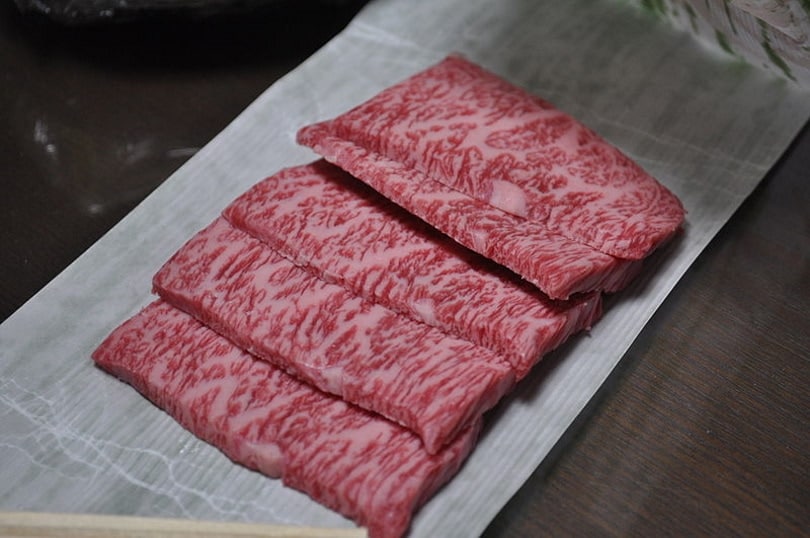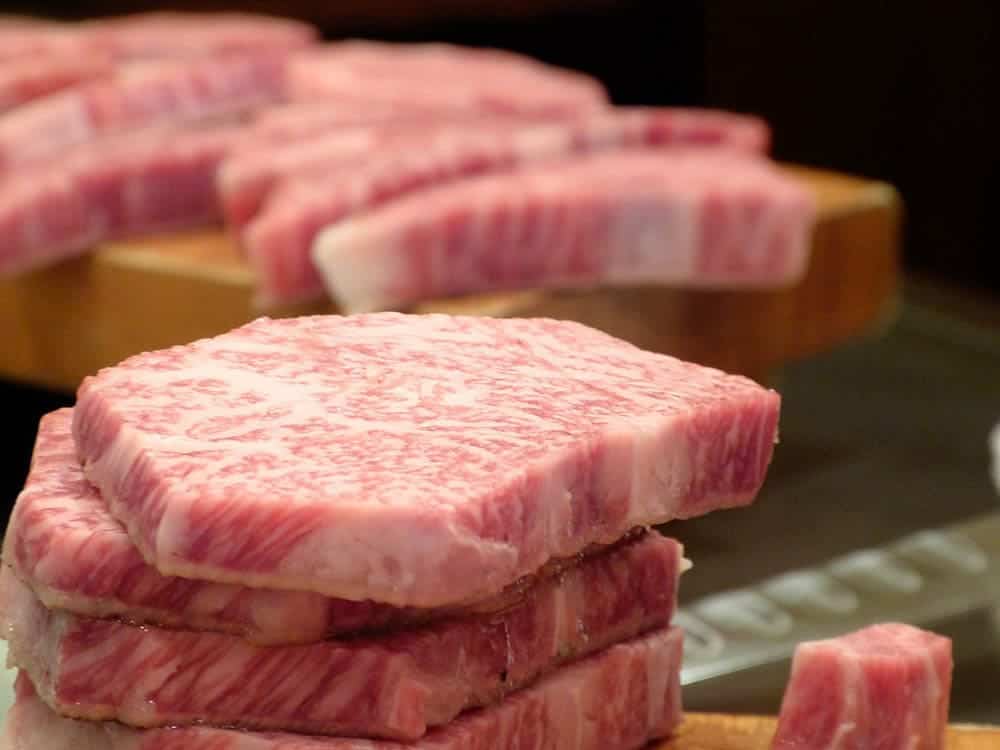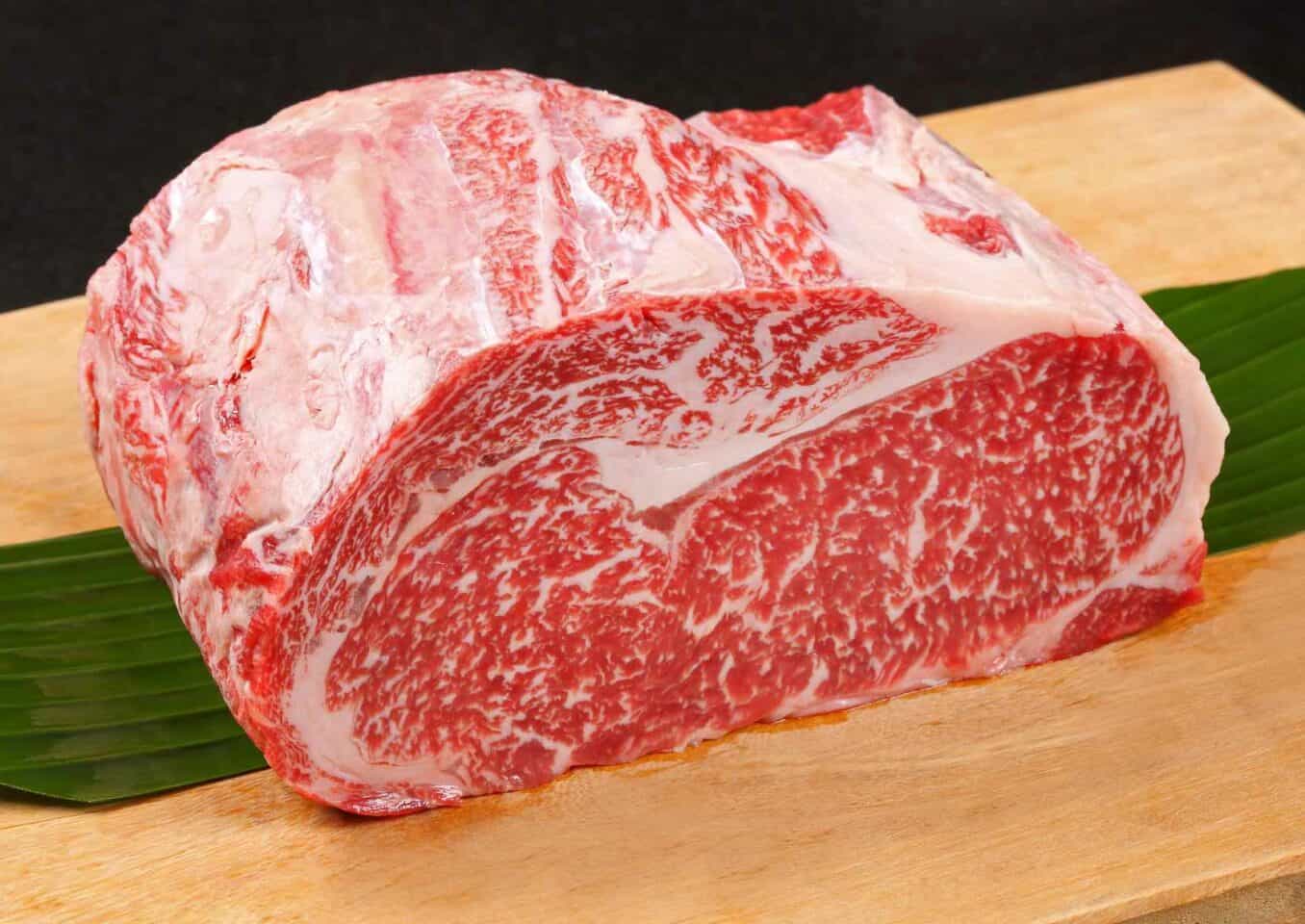It used to be that filet mignon was the best beef you could get. While it’s true about the cut, it’s a different story when it comes to the source of the meat. You’ll hear about Black Angus, Charolais, and Chianina as the top breeds. The newest kids on the block are Wagyu and Kobe beef. The question is, are they the same, and are they worth the price?
Unfortunately, there are a lot of myths and misconceptions surrounding the two terms. We’ll discuss what each one means so that you can make an informed choice at the grocery store or from the menu at your favorite restaurant. One thing is certain. Meat lovers will appreciate the taste and quality that either one brings to the table.

The 8 Common Wagyu & Kobe Beef Myths and Misconceptions
1. Wagyu Beef Is a Centuries-Old Luxury
Many people think that Wagyu beef is something that’s been around forever. However, it doesn’t make sense when you think about Japan. It’s an island nation, with seafood at the forefront of animal-based proteins. After all, it’s synonymous with sushi, nori, and noodles of various types. You’re more likely to find pork or chicken than beef. The latter didn’t make it to the menu until the late 1800s.
https://www.instagram.com/p/CXvrDqVg10Z/
2. There’s More Than One Wagyu Beef
The term Wagyu translates as Japanese cattle, referring to four specific strains. That means there is more than one so-called Wagyu beef. However, only two of the four are available outside of Japan. That’s why you’ll see American Wagyu for animals raised here in the states. The Japanese Polled and Shorthorn are only available in that country. You’ll only find the brown and black types here.
3. Wagyu Beef Cattle Live a Luxurious and Pampered Life
One of the most prevalent and frankly ridiculous myths about Wagyu and Kobe beef is that these cattle live the life, with pampering and special treatments worthy of the most indulgent spas. No, they don’t get facials, Himalayan salt stone massages, or streaming classical music in their stalls decked out in feather beds. However, they receive superior care and nutrition, which affects the beef they produce.
4. Wagyu Beef Isn’t Healthy for You
This myth involves marbling or the fat that exists within the lean meat of the beef. It’s all about the distribution. Gristle and connective tissue are things you’ll see in cuts of lesser quality. Marbling brings flavor and tenderness to Waygu beef. Animals housed in small spaces have a greater proportion of it, which is one reason why this meat tastes so good. However, it doesn’t mean that it’s fatty and unhealthy.
5. Wagyu Beef Means Superior Quality
People tend to equate Wagyu beef with quality. While that’s true for the most part, it’s not a given. Remember that we’re talking about strains of cattle. So many things can impact the quality of the meat they provide, from nutrition to exercise to the quality of the breeding stock. However, the American Wagyu Association strives to promote these superior standards to make this association true.

6. You Have to Go to Japan to Enjoy Wagyu Beef
Wagyu beef isn’t confined to Japan. American Wagyu cattle exist and produce this high-quality meat, albeit with a taste that reflects the upbringing and environment. This sense of place is something that the French use to describe the terroir of wine. It’s all the things that go into making a regional product unique. The same thing applies to Wagyu beef no matter where you get it.
7. The Kobe Beef at Your Grocery Store Is the Real Thing
The term Kobe beef is often thrown around with mislabeling that only perpetuates these myths. The fact remains that little Kobe beef makes it to restaurants overseas, let alone in grocery stores. The term has taken on a life of its own in some circles, making it even more confusing for consumers who want the real thing. That brings us to our last but most important takeaway message.

8. The Two Terms Aren’t Interchangeable
Understanding the myths and misconceptions begins with distinguishing the two terms. As we stated earlier, Wagyu refers to strains of cattle. On the other hand, Kobe is a place where farmers raise these animals. While Kobe beef can be Wagyu, it isn’t a given that Wagyu is Kobe beef. It’s like saying the sparkling wine you’re drinking is Champagne. That’s only true if it’s from that region.
- Related Read: Wagyu Cattle Breed

Final Thoughts: Wagyu and Kobe Beef
Discerning gourmands will appreciate the quality that Wagyu and Kobe beef brings to the table. They will understand the excellent flavor and tenderness they offer. They will also know the difference between the two terms. The best thing to come out of this discussion is that there are quality variations in beef. If you’re limiting your consumption, it pays to know how to enjoy the best you can get.
Featured Image Credit: Kankitti Chupayoong, Shutterstock
